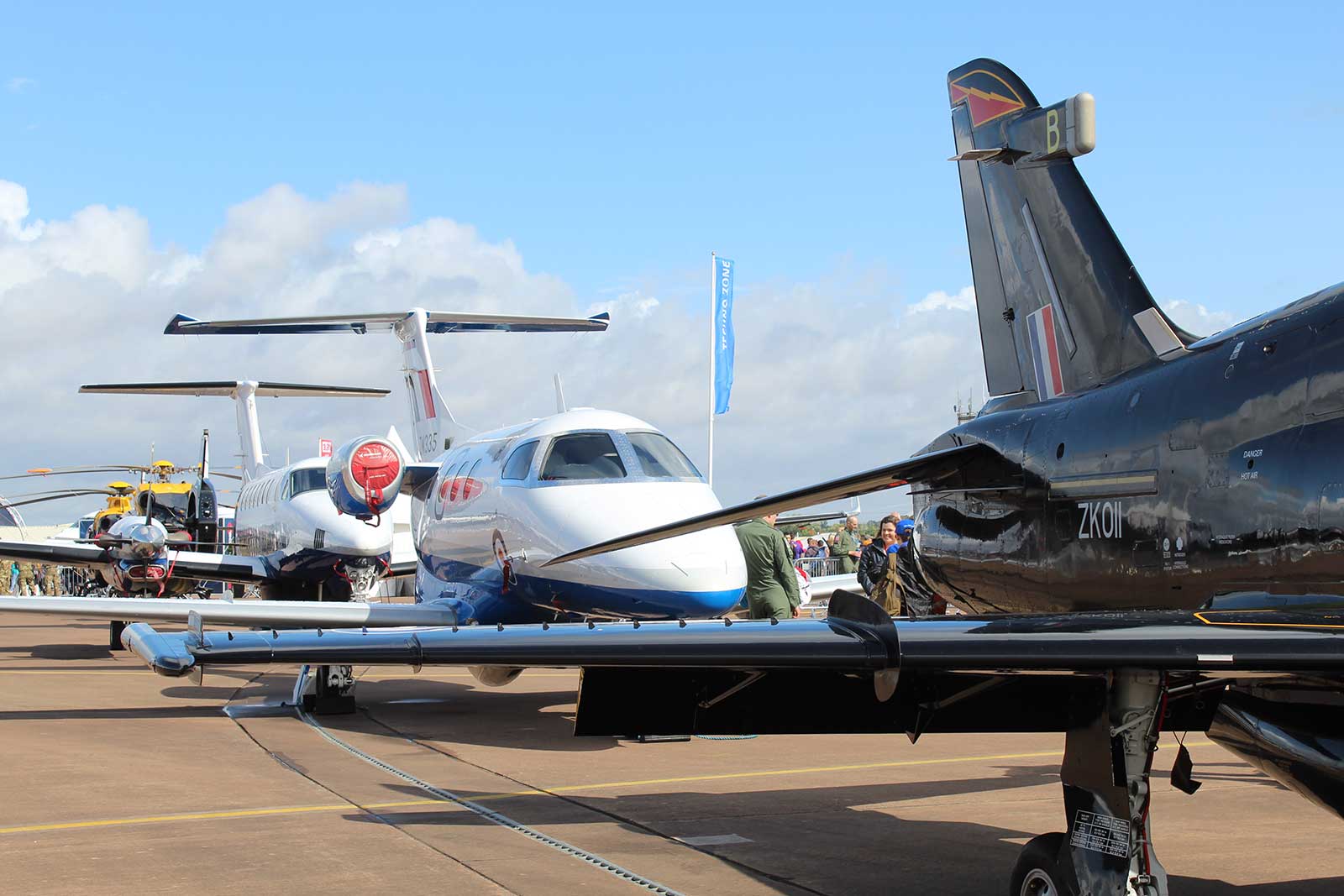Celebrating 15 years of Ascent

Ascent Flight Training celebrates 15 years of training solutions in 2023.
Since 2008, as a key industry partner of the UK MOD, Ascent has delivered a turnkey, cost effective, integrated, tri-service aircrew training capability for the UK Armed Forces. This means providing the right number and quality of trainees to the operational conversion units (OCUs), at the right time, through Phase 2 UK Military Flight Training System (UKMFTS) pipelines.
While there have been expected bumps in the road associated with introducing a programme of the scope and complexity of UKMFTS, harmonisation of the overall training system is well advanced, with Ascent supporting across fixed wing, rotary wing, and rear crew pipelines.
Ascent’s history
In 2008, Ascent Flight Training Ltd, a 50/50 joint venture between Lockheed Martin and Babcock International, became the training provider for UKMFTS – an ambitious 25-year, £3.5bn private-public programme.
Since then, Ascent and UKMFTS have graduated nearly 2,000 military aircrew trainees – from all three armed services – through an optimised live:synthetic experience. This has seen the completion of more than 133,000 flying hours and 91,000 simulator hours. Ascent’s training solutions cover six UK locations, with 410 staff, 110 aircraft and more than 100 simulators.
Working in partnership with its customers to understand their requirements, Ascent creates aircrew training systems using a full range of integrated solutions, from digital classrooms and interactive courseware, to instructor-led training, immersive simulation, virtual and augmented reality environments, and live flying.
It leverages a global network of supply chain partners to provide customers with a tailorable turnkey solution. This includes building and equipping training centres, developing learning management and training management systems, and procuring aircraft and ground-based training equipment, delivered by highly experienced operations and instructional staff.
Looking to the future
Looking to the future, Ascent will continue to build and evolve UKMFTS programmes to meet emerging needs. Next generation aircrew is critically dependent upon the continual improvement of UKMFTS’s aircraft, simulators and learning technology, through innovation and experimentation.
UKMFTS capacity is being expanded to match the demands of a modernised and more capable front line. Capacity in rotary wing flying training has been increased, so that Royal Navy and Army Air Corps helicopter pilots will not need to complete fixed wing training. This releases capacity in Elementary Flying Training for an increased number of RAF fixed wing pilots required for new Combat Air and Air Mobility/ISTAR capabilities.
The expansion of the fixed wing Basic Flying Training service at RAF Valley will provide for growing training needs, with four additional Texan T1 aircraft already operational. The new infrastructure completed in May 2023, and additional simulators are on schedule for delivery later this year. This will increase capacity from 36 to 53 trainees per year, in this section of the fast jet pipeline.
Our FJ Transformation research and development project has shown the value of mixed-reality synthetic training equipment and enhanced courseware solutions.
Increased use of ground-based simulated flight training enables students to acquire skills more quickly and to experience a wider range of events that may not be easily delivered through real flight training, improving the transition to operational aircraft.
Greater use of ground-based training also has cost and environmental benefits, by reducing the carbon footprint through a reduced number of training flights.
A new £125m Rear Crew Sustainment contract will enable Ascent to recapitalise the Avenger aircraft and associated mission simulators at RNAS Culdrose, offering trainees access to a live, active, electronically scanned array radar and modern airborne mission system. The Future ISTAR and Rear Crew Training System (FIRCTS) programme is the final phase. Ascent has commenced a competition for the aircraft service and synthetic training equipment provisions.
Ascent’s rotary wing operations across RAF Shawbury, RAF Valley and AAC Middle Wallop, continue to test and prepare trainees. Both pilots and rear crew are operating in increasingly realistic whole crew and multi-ship scenarios.
The expansion of the programme to meet SDSR15 requirements is now well established, with three additional H145 aircraft operational, and the Rotary Wing Only pipeline is well underway for Army and Royal Navy trainees.
Across all UKMFTS pipelines, Ascent continues to invest for the future, and a significant amount of its focus is on the digital transformation of the system. It is now capturing and utilising the value in the large data sets generated from the training systems, to better understand performance and continuous development, while offering safety improvements such as flight data monitoring across our aircraft types.
Ascent now has the modern aircraft and technology needed to train into the future and continues to see a steady improvement in the progression of UK aircrew through their training.

